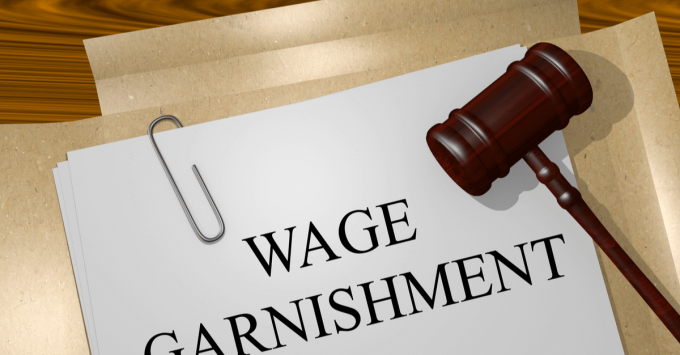If you owe someone money, have unpaid bills, and/or pending loan payments, creditors may attempt to get their money by garnishing your wages. Typically, debt collectors need a court order, also called a wage attachment, to deduct money from your paycheck. When this happens, your employer takes out a percentage of your salary every pay day and sends it over to the designated creditor. How much of your wage a creditor can garnish depends upon Federal and Massachusetts laws.
Most creditors are subject to a limit of 15% of your gross income, which is before taxes and other mandatory deductions are made by the employer. However, every debt collector is not subject to the same rules and regulations, i.e. it all depends upon the type and value of debt. Some creditors may lawfully take away more than 50% of your regular wages, without acquiring a money judgment first.
The Procedure and Eligibility for Wage Garnishment
In most cases, the debt collector must first file a lawsuit against you in court and serve you with a legal notice, in order to obtain a wage attachment order. The creditor is then required to appear in court and present evidence to prove that you owe them money. The state of Massachusetts has very strict policies regarding proof in consumer debt collection cases. The debtor has the opportunity to defend themselves in court and nullify the creditor’s claim. For example, you can establish that the debt has already been paid or that there are errors in the provided documents.
If the debtor does not show up on the hearing date, the creditor will be granted a default judgment. Receiving a money judgment from the court is not so simple, but whichever creditor is successful gains the right to garnish your salary until their debt is paid in full. An administrative attachment is available to creditors that do not necessarily require a court judgment to collect debt from you. For example, the IRS can directly garnish your wage to make up for unpaid taxes. Similarly, student loans and domestic obligations, such as child support and alimony also qualify for administrative attachments.
The statutes for administrative attachments are different than those for regular wage garnishments. The information provided in this article is in accordance to wage garnishment laws in Massachusetts, but statutes are updated over time, and can vary by region within the state. Therefore, it is recommended to attain confirmation and consultation from a local legal expert like Foreclosure Wage Garnishment Attorney in Beverly, MA.
How to stop Wage Garnishment?
It is indeed frustrating to discover that your wage is being garnished, especially if you are already struggling to make ends meet. Luckily, there are ways to reduce or put a stop to an essentially unfair wage attachment. Hire an attorney to understand how wage garnishment works and whether your creditors are complying with Massachusetts income withholding limits. If the creditor claims are legit, you should consider paying off the underlying judgment debt as a lump sum. If you have sufficient disposable funds or property that can be liquidated, settle your debt before the garnishment order takes effect; or you may allow the garnishing until you are able to compensate for remaining debt.
If your financial conditions are awful, you also have the option to file bankruptcy and obtain an automatic stay. Debt collectors will not be able to demand or collect any money from you until the bankruptcy ends; not to mention, you may qualify for complete discharge of unsecured debt. The bankruptcy trustee may sell your non-exempt assets or devise a payment plan to reimburse secured debts.


